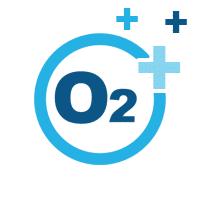Brain Damage
Brain damage is an injury that causes the deterioration or destruction of brain cells. Brain damage includes both Traumatic Brain Injury (TBI), caused by an external force, and Acquired Brain Injury (ABI), occurring at the cellular level. The severity of damage can vary based on they type of injury, but can range from headaches, confusion, and memory problems, to more severe cognitive, behavioral, and physical disabilities.
Benefits of Hyperbaric Oxygen Therapy for Brain Damage:

Increases Amount of Oxygen in the Blood
Stimulates development of new blood vessels from pre-existing vessels as well as the natural development of new blood vessels.

Reduces Inflammation & Swelling
Suppresses the cellular activity of the immune system which triggers swelling when an injury or damage to the body occurs. While this reaction is meant to start healing and protect from injury it can result in secondary injury, pain, and prolonged recovery time.

Preserves, Repairs, & Enhances Cellular Functions
Boosts cellular metabolism, promotes rapid cell reproduction, and enhances collagen synthesis. Collagen is a protein in connective tissues like skin.
Key Research on Hyperbaric Oxygen Therapy for Brain Damage
Recent News on Hyperbaric Oxygen Therapy for Brain Damage
Maroon wins Arthur C. Rettig Award
Image Credits @drjosephmaroon Steelers' neurosurgeon Joseph C. Maroon, MD, was awarded the Arthur C. Rettig Award for Academic Excellence by NFL Physicians Society (NFLPS). Dr. Maroon was presented the award at the NFLPS scientific meeting during the 2022 NFL...
North Carolina launches plan to use new “lifesaving” oxygen therapy to treat veterans for PTSD
By Keenan Willard, WRAL eastern North Carolina reporter North Carolina is one of the first states in the country to start using a new oxygen treatment to help veterans overcome Post Traumatic Stress Disorder. Hyperbaric oxygen therapy is being called a "lifesaver"...
Dr. Maroon’s Personal Experience with Hyperbaric Oxygen Therapy
My Personal Journey to Florida’s Aviv Hyperbaric Clinic – By Joseph C. Maroon, MD, FACS* In 1513, Spanish explorer Juan Ponce de León, traveled to Florida seeking the Fountain of Youth. Legend has it that magical waters, from a special spring, could reverse the aging...
Related Indications
Schedule a Consultation
Additional Research
Increased circulating stem cells and better cognitive performance in traumatic brain injury subjects following hyperbaric oxygen therapy.
Traumatic brain injury (TBI) may cause persistent cognitive dysfunction. A pilot clinical study was performed to determine if hyperbaric oxygen (HBO₂) treatment improves cognitive performance. It was hypothesized that stem cells, mobilized by HBO₂ treatment, are recruited to repair damaged neuronal tissue. This hypothesis was tested by measuring the relative abundance of stem cells in peripheral blood and cognitive performance during this clinical trial. The subject population consisted of 28 subjects with persistent cognitive impairment caused by mild to moderate TBI suffered during military deployment to Iraq or Afghanistan. Fluorescence-activated cell sorting (FACS) analysis was performed for stem cell markers in peripheral blood and correlated with variables resulting from standard tests of cognitive performance and post-traumatic stress disorder: ImPACT, BrainCheckers and PCL-M test results. HBO₂ treatment correlated with stem cell mobilization as well as increased cognitive performance. Together these results support the hypothesis that stem cell mobilization may be required for cognitive improvement in this population.
Baseline vestibular and auditory findings in a trial of post-concussive syndrome
Abstract: Previous studies have reported high rates of auditory and vestibular-balance deficits immediately following head injury. This study uses a comprehensive battery of assessments to characterize auditory and vestibular function in 71 U.S. military service...
Review of recent non-hyperbaric oxygen interventions for mild traumatic brain injury.
Traumatic brain injury (TBI) affects 3.2 to 5.3 million persons in the United States (U.S.), and the impact in the U.S. military is proportionally higher. Consensus is lacking regarding an accepted outcome to measure the effectiveness of interventions to improve the symptoms associated with TBI, and no standard-of-care treatment exists for mild TBI (mTBI). A recent literature review evaluated hyperbaric oxygen therapy (HBO₂) interventions, and findings were mixed. We conducted a systematic review of non-HBO₂ mTBI interventional trials published in 2005-2015 in military and civilian populations. A total of 154 abstracts, seven randomized controlled trials (RCTs) and five pilot studies were reviewed. RCTs were evaluated using Consolidated Standards of Reporting Trials criteria. Results indicated that studies published within the period of review were small pilot studies for rehabilitation therapy and motion capture or virtual reality gaming interventions. Neuropsychological assessments were commonly specified outcomes, and most studies included a combination of symptom and neuropsychological assessments. Findings indicated a lack of large-scale, well-controlled trials to address the symptoms and sequelae of this condition, but results of small exploratory studies show evidence of potentially promising interventions.
